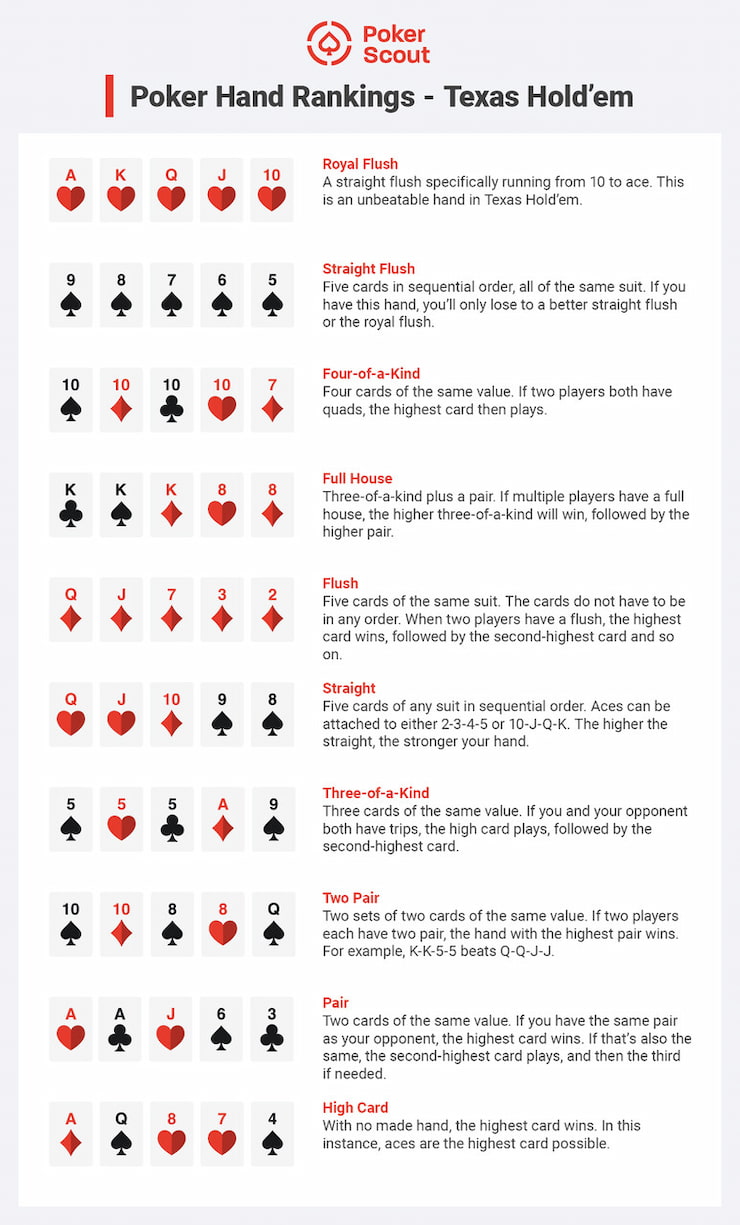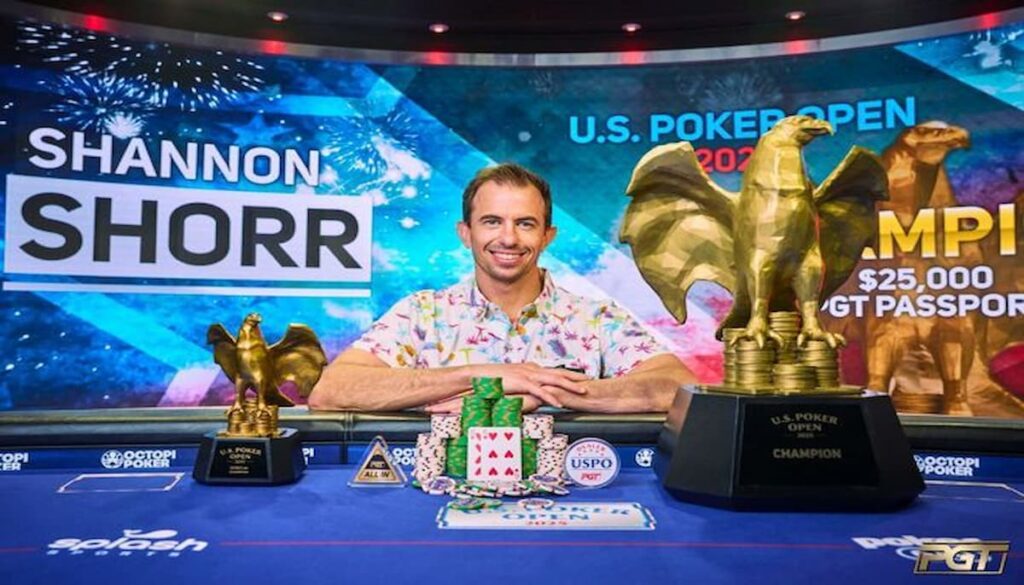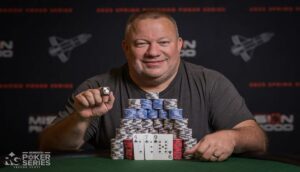If you know how to deal poker, you’ll understand why it can take time to be a master. You might not realize when you have a great dealer, but you certainly know when you have an amateur at the helm.
Learning how to deal poker is a great skill to have in your card-playing arsenal. And, although there can be some differences depending on the variation of poker you’re playing, we will take you step-by-step through how to deal poker for beginners.
What Does a Poker Dealer Do?
A poker game cannot be played without a dealer: someone who distributes the cards in the correct order, at the correct times, and who manages the betting in each round. Knowing how to deal in poker is vital to ensuring that the game runs smoothly and fairly from one hand to the next.
This includes shuffling and then circulating the hole cards and, in stages, the community cards – knowing what these cards are is important before you get started. Use our how to play Texas Hold’em guide to help you get up to speed.
You will also need to know the small and big blind amounts, and oversee the pot during each stage of the action.
How to Deal Poker
Let’s take a closer look at how to deal poker cards for each part of the round, including how this differs depending on the variant of poker you are playing.
All types of games including Hold’em is played with a standard deck of 52 cards, with all jokers removed – which is important to remember if you’re arranging a live game among amateur friends.
Shuffle and Cut
Often, to begin, each player is dealt a single card. Whoever has the highest card (aces being high) has the privilege of being the first dealer of the game.
This will then rotate in a clockwise direction, from the first player to the left of the dealer, after the first round. This is usually indicated by a dealer button, which is passed from one dealer to the next.

In a difference from what you get at the best online poker sites, where secure software shuffles, at in-person casinos the cards are shuffled in front of you.
You will usually see the poker dealer fanning the cards out across the table before a game begins. This is a good way of checking that the deck has the full complement of 52 cards in it.
It is imperative that the deck is shuffled thoroughly before each round, as this randomizes the order of the cards and stops players from knowing where any of the cards are. There is no limit on the amount of time or shuffles that you perform if playing at home.
Although there are different techniques for shuffling – such as the riffle or the overhand, do whatever comes naturally to you. The key thing is to make sure the players can’t see any of the cards while you’re doing so – you don’t want to be accused of being unfair.
Another way to do this is by cutting the deck before you deal the cards. This is done by splitting the deck into two roughly equal piles, and placing the lower half on top of the higher. One more shuffle, and your cards are ready to be dealt.
Blinds and Antes
There are two blinds in poker – a small blind and a big blind. These are mandatory bets by two players which ensures that there is always a stake in the pot to be won.
The player to the left of the dealer places the small blind, and the player left of them, the big blind. It is the role of the dealer to make sure these blinds have been bet and are of the correct amounts, as they increase as the game goes on.
Occasionally, a game will also feature an ante – a small, obligatory bet paid by all players before the action begins in each round. Often, this does not come into play until the later stages of a game. Once again, the dealer is responsible for ensuring all players pay the correct amount.
Dealing Hole Cards
Now the blinds have been posted, each player is dealt one card at a time, beginning with the player sitting to the left of the dealer in a clockwise direction.
This cycle continues until all players have two cards. Knowing how to deal poker cards means knowing that all cards must be dealt face down. This is so that none of the other players can see each other’s cards.
When all players have two cards for Texas Hold’em, or four for Omaha, the first stage of betting can begin.
Burn and Flop
In both Texas Hold’em and Omaha, the next stage of the action is called the flop. How to deal a poker flop is by first taking the top card of the deck, not showing it to anyone, and placing it face down on the table, out of play. This is called the “burn” card.

The top three cards on the remaining deck are then placed face up in the middle of the table, and are the first of the community cards. The players in this round of the action can then choose to bet – starting with the first player still in play who is left of the dealer.
Burn and Turn
The next stage of action is called the turn, and proceeds in almost the same way to the flop. However, at this point, you as the dealer burn one card from the top of the deck as before, but then only turn over one card from the remaining deck to be placed in the middle.
As before, betting then commences amongst the surviving players.
Burn and River
The final stage of the round is called the river. Once again, you as the dealer will burn the top card, and just like at the turn stage, you place one card in the middle of the table, face-up.
This is the fifth and final community card. Betting then takes place between the players.
Betting Rounds
Knowing how to deal in poker also means mastering how to facilitate the betting that comes along with it.
At each stage of the action, there is a chance for all the players involved in the hand to bet. It is your role as the dealer to ensure that players are posting the correct blinds and antes, and when a raise is made, that the right amount of chips are used.
For example, if a player calls a raise of 250 – you as the dealer then have to check and ensure that the player has actually pushed 250 chips into the pot. Likewise, anyone calling this bet needs to have the correct denomination of chips available – it is your job to check this.
Remember, betting occurs before the flop, and after each reveal of community cards. This is essential when learning how to deal in poker.
Showdown
Once all of the rounds have been completed, and the final bets have been called, if there are two or more players remaining in the hand, then there is a showdown.
This is where the players reveal their cards, and the winner is announced. As the dealer, you must determine who has the winning hand. This is a very important moment, as the dealer needs to know hand rankings, found at our poker cheat sheet.
Meanwhile, at the best online poker tournaments, there will be no second-guessing. The software automatically declares the winner and your winnings are paid.
Here are the poker hand rankings for Texas Hold’em:
Pushing the Pot
Pushing the pot means gathering all of the chips that have been placed during the hand, and awarding them to the winner.

Be careful to ensure that you have collected both of the blinds, the antes (if being played), and all of the bets made by players.
Push all of these chips over to the winner, and then pass the dealer button to the first player to your left – your turn as the dealer for this round has now ended.
Different Dealing Rules for Poker Variations
Though Texas Hold’em and Omaha are known as the most popular versions of poker, there are other variants of the game, and with them, variations on how they are dealt.
Below is an outline of the key differences to be aware of.
How to Deal Texas Hold’Em Poker
In Texas Hold’em, players are dealt two hole cards to begin with. Three community cards are dealt on the flop, with one on the turn, and one on the river. Each set of community cards are dealt after a round of betting.
Players must make their five-card hand using any combination of their hole cards and the community cards. This is a key component of learning how to deal cards in poker.
How to Deal Omaha Poker
Knowing how to deal Omaha poker is very similar to Texas Hold’em, but with one key difference: players are dealt four hole cards at the outset.
Unlike Hold’em, players must use exactly two of their hole cards combined with three of the community cards to make their strongest hand.
You’ll need to know this, even if you’re just keeping up with the action at the best Omaha poker sites.
How to Deal Three-Card Poker
In Three-Card Poker, all players are dealt three hole cards, face down. This includes the dealer.
There are no community cards dealt in this poker variant. Betting takes place before and after the dealer reveals their cards.
How to Deal Five-Card Draw
Five-Card Draw is a popular variation of poker where players are dealt five cards, face down, to begin with.
Like Texas Hold’em and Omaha, there is an opportunity for players to place bets at this point.
If there are players remaining in the pot, there follows two ‘draw’ rounds, with chances to bet in between them. In these rounds, players can discard up to three of their cards and draw replacement cards from the deck.
If players remain, they go to the showdown where the player with the best five-card hand wins.
How to Deal Poker: Key Points
Now that you have followed our key steps you will know how to deal poker, in all of its variants, from Texas Hold’em to knowing how to deal 5 card poker. Follow our expert golden rules and your games will run smoothly and fairly, and you will even be able to instruct others on how to deal in poker.
Some key things to always keep in mind:
Shuffle thoroughly before dealing the cards – it’s not a good look if a player receives the same cards two hands in a row.
Always deal hole cards face down – you don’t want to be accused of giving anyone an unfair advantage!
Keep an eye on the blinds and bets, and manage the pots as the action progresses. This means watching the action closely and not waiting until the final showdown before attempting to total up all of the stakes.
Know poker hand rankings so you know who has won.







